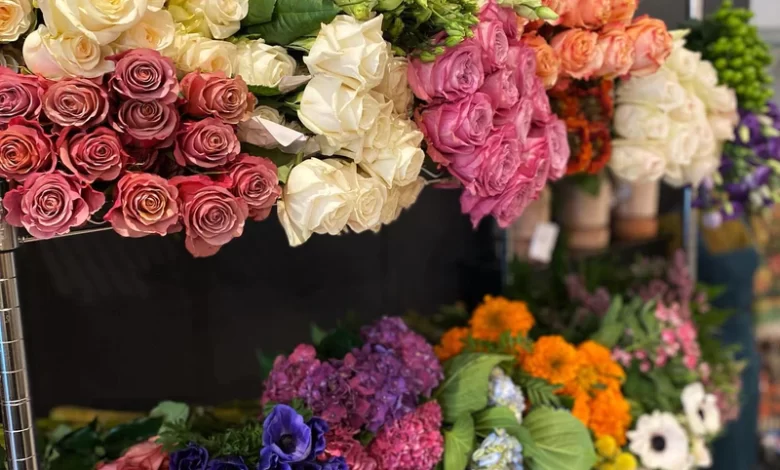
FLOWERS INFLUENCE WORLDWIDE CULTURAL
Flowers play an important role in many of our earliest customs. In a time when you were studying about history, visiting museums or experiencing different cultures, remember all the ancient artwork you saw. I’m curious to know how many of those painters used flowers in their work. Although the exact percentage is unclear, it is reasonable to infer that a considerable number of people did. Flowers have been and continue to be an important part of many cultures and communities across the globe. To better understand these cultural effects, let’s take a deeper look at them.
AFRICA:
Flower of South Africa is the Protea, which stands for variety, change, and the ability to persevere. In honour of Proteus, the Greek god of transformation, this flower is name after him. Proteas are so popular in South Africa that they have adopted as the national cricket team’s insignia.
South America:
Flowers are mostly give and receive by women in Brazil. The most common way for men to send flowers is via their spouses. Colors like yellow, pink and white are the most popular when it comes to gift-giving, whereas black and purple are connect with sadness.
ASIA:
In many Asian cultures, giving someone a potted plant is consider impolite, particularly to someone who may ill, since it symbolises constraint. Potted plants are said to have taken root when they are kept in the house, which translates to “sleeping”. This isn’t the best environment for folks who are ill to get well quickly. In addition, there are a number of plants whose symbolic implications are profound. For example, a lotus blossom is thought to bestow peace and harmony at home, while orchids represent weather and prosperity. Red is a popular choice for bouquets because of the positive connotations associated with the hue.
A single flower or an unopened bunch is a typical birthday present in Russia. Carnations, lilies, or roses are offer in a circular arrangement when expressing sorrow or sadness. This arrangement symbolises the movement from birth, life, and death to a new beginning.
EUROPE:
The hue of flowers has special significance in German culture. At a funeral, white flowers are common, while red flowers represent love, yellow and orange flowers represent joy, and blue flowers represent the spirit of liberty.
Flowers were traditionally used to ward off bad spirits and promote fertility in ancient Rome. Many Italian superstitions are still practice today. There is a reason why roses are never offer in an even quantity because it is connect with grief. When it comes to gifting roses, the majority of European nations prefer to give them in an odd number, except for Britain, which has a superstition about the number 13.
Dia do Trabalhador (Worker’s Day) is a national holiday in Portugal celebrated on May 1st each year as a way to honour and commemorate the rights of workers. The original purpose of this festival was to mark the arrival of Spring and to spread joy and anticipation for the months ahead. It has long been a tradition among the Portuguese to decorate their houses with yellow flowers known as “Maias” to ward off bad spirits for the next year.
AUSTRALIA:
Gardening is a favourite pastime for many Australians. For them, taking care of their gardens and buying flowers for loved ones are pastimes that bring them great joy. As well as lilies, daisies, and roses, Australians take great pleasure in the Golden Wattle, their national flower. Unity, recollection, and introspection are all said to represent by this flower.
CANADA AND THE UNITED STATES:
The richness of Mexico’s flora is highly value in Mexican society. A wide variety of flowers have utilised for religious and medicinal purposes since pre-Columbian times. Floral displays are common in Mexican marketplaces, temples, altars, and residences. Historically, Mayans place flowers on altars to appease the gods, believing that these gods were derived from the blossoms of flowers. Each year during Día de los Muertos, or Day of the Dead, people honor the legacy of those who have died. Creating ornate altars adorned with photographs, candles, and symbolic flowers is an important part of this ceremony.
Roses are also a symbol of love in the United States and Canada. To express your affection and gratitude, it’s customary in the United States to give a dozen red roses to a special someone. Flowers are give to mothers in both nations on Mother’s Day. When it comes to Valentine’s Day flowers, Canadians choose roses, carnations, and chrysanthemums, while Americans favour a wide variety of brightly coloured blooms.
As you can see, there are many different ways in which we integrate flowers into our daily lives depending on our own cultural and religious traditions, and this is just one of many examples. Consider the flowers around you the next time you’re out and about. It’s a terrific chance to see the impact flowers make on people all across the globe!
If you want some flowers for your event, have a look on this: https://www.bellarosaflowers.ae/



